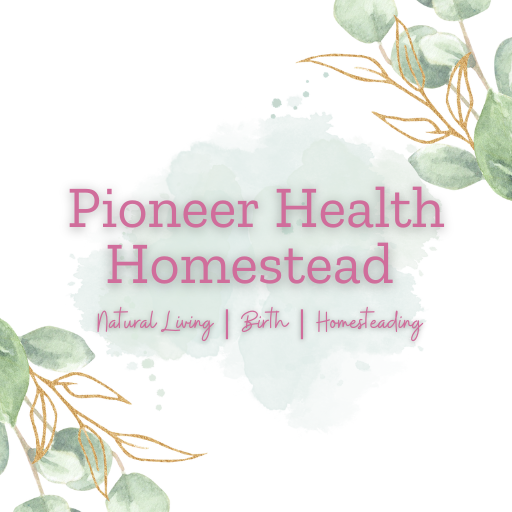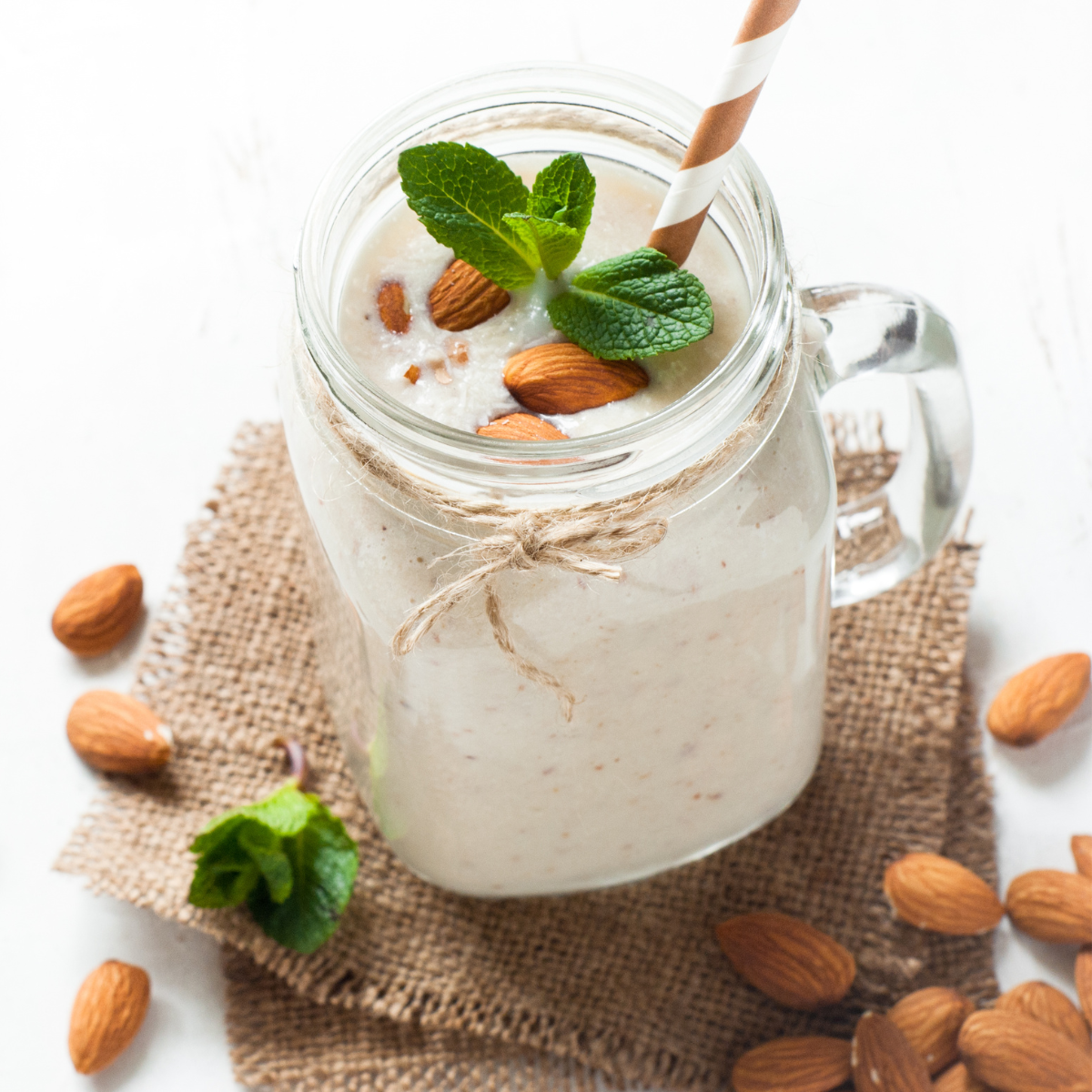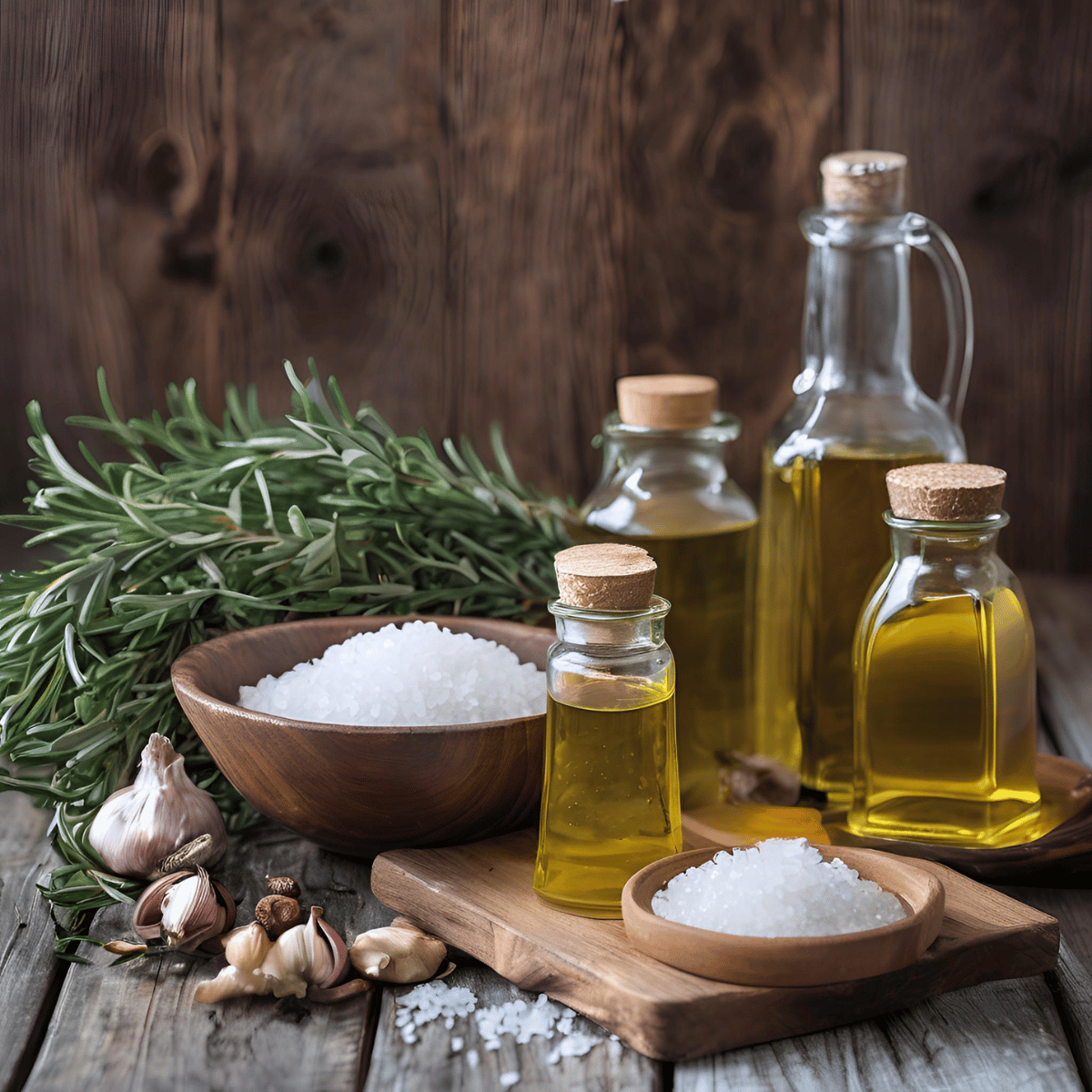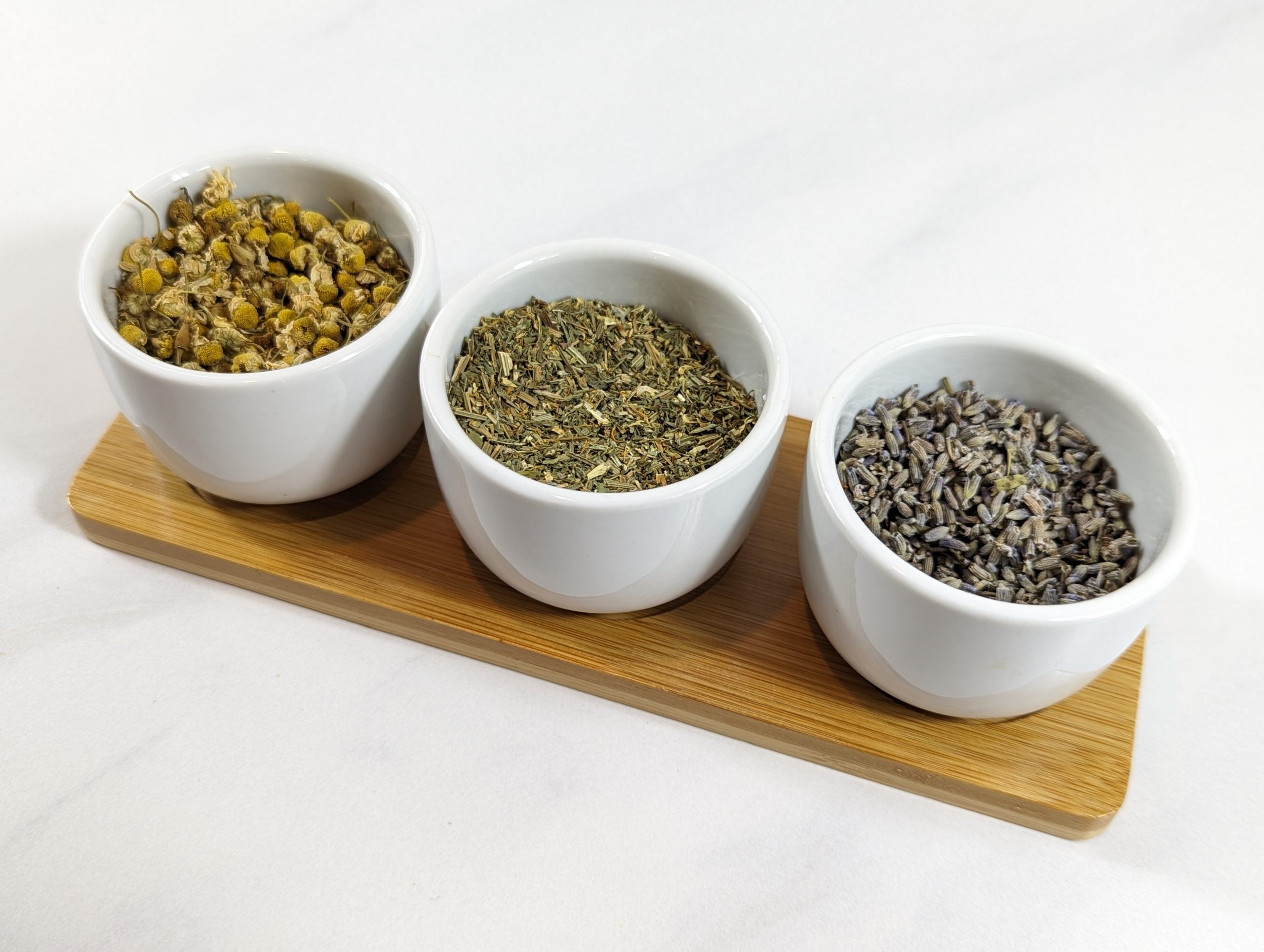Best Herbs for Autoimmune Diseases: Natural and Safe Remedies
When it comes to managing autoimmune disorders, finding the best herbs for autoimmune diseases can be a game-changer. As a Registered Nurse and a mom of five, I understand how overwhelming it can be to navigate autoimmune conditions, whether it’s rheumatoid arthritis, Crohn’s disease, or Hashimoto’s disease. These chronic illnesses can disrupt daily life, affecting everything from the nervous system to overall health. Over the years, I’ve discovered that integrating herbal medicine into a comprehensive treatment plan can offer significant relief without the harsh side effects often associated with conventional medication.
What to Expect for Best Herbs for Autoimmune Diseases
In this post, I’ll share some of my favorite herbal remedies that have shown beneficial effects in managing autoimmune symptoms. We’ll explore how specific herbs can support immune function, reduce chronic inflammation, and help the body cope with the stress that often accompanies autoimmune conditions. While these natural remedies can be incredibly helpful, it’s important to consult with a healthcare provider before adding any new supplements, especially when dealing with chronic disease.
Whether you’re just beginning your journey with autoimmune issues or looking for ways to complement your current treatment plan, I hope this information will empower you to take a holistic approach to your health and find some natural relief along the way.
Save for Later!
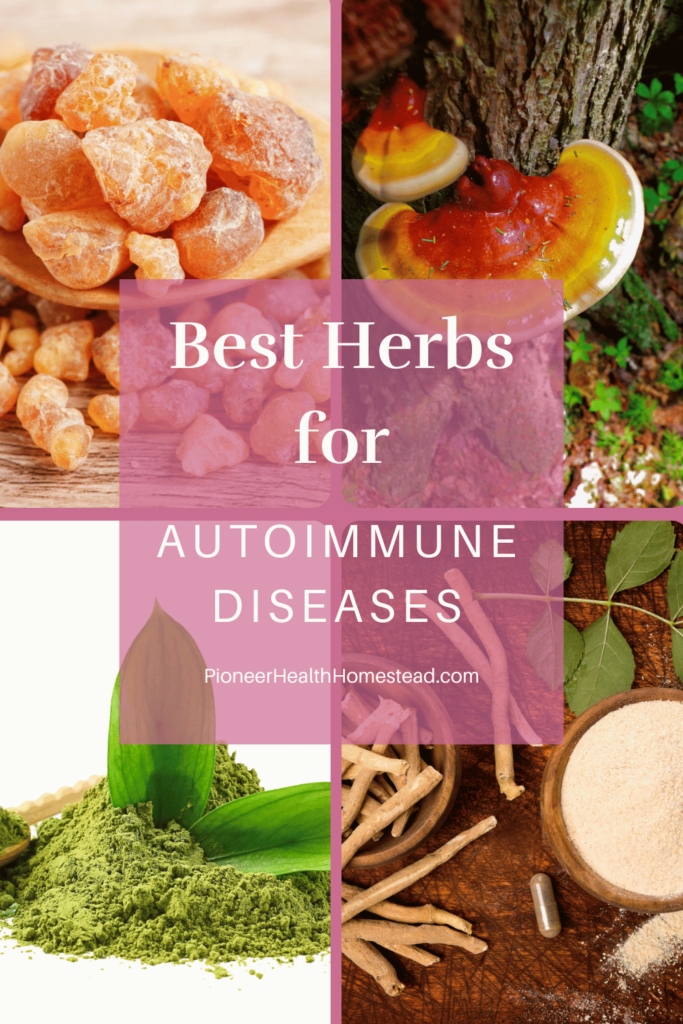
Understanding Autoimmune Diseases
What Are Autoimmune Diseases?
Autoimmune diseases occur when the immune system, which is designed to protect the body from harmful invaders like bacteria and viruses, mistakenly attacks its own healthy cells. Instead of recognizing these cells as part of the body’s tissues, the immune system treats them as threats, leading to inflammation and damage. This immune system attack can target various parts of the body, including organs, joints, skin, and other tissues, causing chronic inflammation that can be difficult to manage.
Common Autoimmune Conditions
Rheumatoid Arthritis
Rheumatoid arthritis is an autoimmune condition that primarily affects the joints. The immune system mistakenly attacks the lining of the joints, leading to pain, swelling, stiffness, and sometimes even deformity. Chronic inflammation can make it challenging to perform daily tasks, and the condition can vary in severity, with flare-ups and periods of remission.
Ulcerative Colitis
Ulcerative colitis is a type of inflammatory bowel disease (IBD) that causes inflammation and sores (ulcers) in the lining of the colon and rectum. This immune response affects the digestive tract, leading to symptoms like abdominal pain, diarrhea, and sometimes bleeding. People with ulcerative colitis often experience cycles of active symptoms and calm periods.
Celiac Disease
Celiac disease is an autoimmune disorder where the ingestion of gluten triggers an immune response that damages the small intestine. This can lead to digestive issues, nutrient deficiencies, and other symptoms like fatigue and weight loss. The key to managing celiac disease is strict adherence to a gluten-free diet.
Crohn’s Disease
Another form of inflammatory bowel disease, Crohn’s disease can affect any part of the gastrointestinal tract, from the mouth to the anus. Symptoms vary but often include abdominal pain, diarrhea, weight loss, and fatigue. Like ulcerative colitis, Crohn’s disease is characterized by periods of flare-ups and remission.
Systemic Lupus Erythematosus (SLE)
Systemic lupus erythematosus, commonly known as lupus, is an autoimmune disease that can affect multiple organ systems, including the skin, kidneys, joints, and heart. The immune system’s attack on healthy cells leads to widespread inflammation, causing symptoms like joint pain, skin rashes, and organ dysfunction. Lupus is known for its unpredictability, with symptoms ranging from mild to life-threatening.
Graves’ Disease and Hashimoto’s Disease
Both Graves’ disease and Hashimoto’s disease are autoimmune conditions affecting the thyroid. In Graves’ disease, the immune system causes the thyroid to produce too much thyroid hormone (hyperthyroidism), leading to symptoms like weight loss, rapid heartbeat, and anxiety. On the other hand, Hashimoto’s disease results in an underactive thyroid (hypothyroidism), causing symptoms such as weight gain, fatigue, and depression.
Myasthenia Gravis
Myasthenia gravis is an autoimmune disorder that impacts the communication between nerves and muscles, leading to muscle weakness. It commonly affects muscles that control eye movements, facial expressions, and swallowing. Symptoms may worsen with activity and improve with rest.
Symptoms of Autoimmune Diseases
Chronic Inflammation
One of the hallmark signs of autoimmune conditions is chronic inflammation. This persistent inflammation is the body’s immune response attacking its own tissues. It can lead to pain, swelling, and redness in affected areas, whether it’s joints, the digestive system, or other body tissues.
Fatigue and Muscle Pain
Many autoimmune diseases are accompanied by chronic fatigue and muscle pain. This can make even simple tasks feel exhausting and interfere with daily life. The ongoing battle within the immune system drains energy and can lead to persistent tiredness that doesn’t improve with rest.
Digestive Issues
Conditions like Crohn’s disease, ulcerative colitis, and celiac disease often cause significant digestive symptoms, including abdominal pain, bloating, diarrhea, and constipation. These symptoms can be particularly distressing and can affect nutrient absorption, leading to further health complications.
Psychological and Emotional Stress
Living with an autoimmune disease isn’t just a physical challenge; it can also take a toll on mental and emotional health. The unpredictability of symptoms, combined with chronic pain and fatigue, often leads to psychological stress and emotional strain. Many individuals may experience anxiety or depression as they navigate their condition.
Impact on Overall Health
The ongoing autoimmune response can have widespread effects on overall health. Beyond the specific symptoms of each disease, the body’s constant state of inflammation can increase the risk of other health issues, such as cardiovascular disease, digestive disorders, and even a reduced ability to fight infections. Understanding these broader impacts is crucial in managing autoimmune conditions holistically.
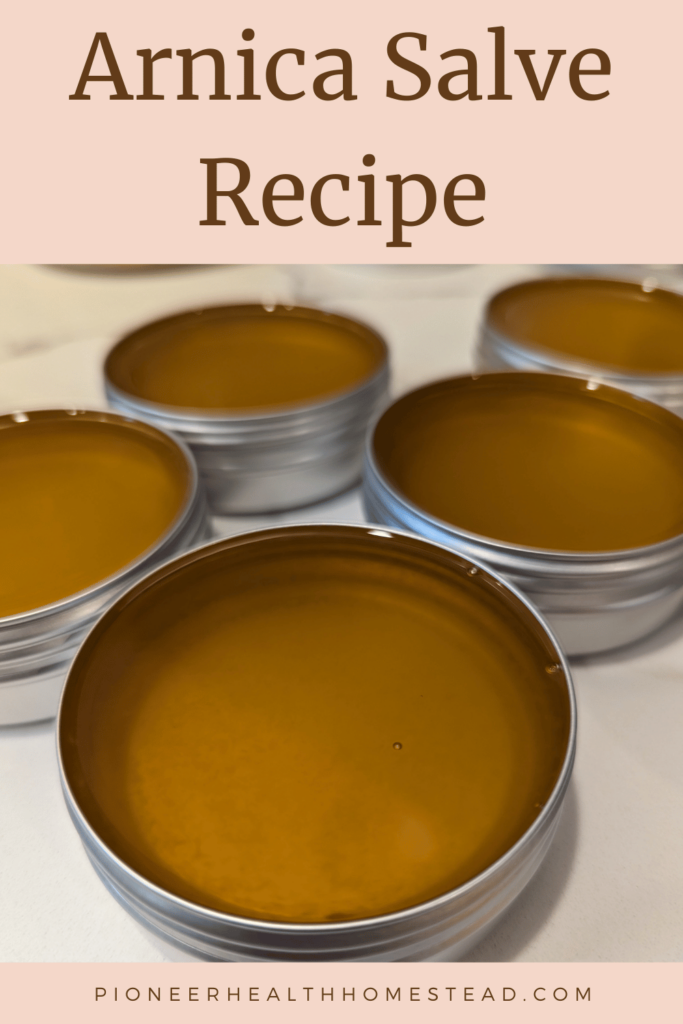
How Herbal Medicine Can Help
The Role of Herbal Medicine in Autoimmune Diseases
Herbal medicine has been used for centuries across various cultures to support overall health, and it can play a valuable role in managing autoimmune diseases. Herbs can help by modulating the immune system, reducing inflammation, and offering a holistic approach to symptom management. Many herbs have natural anti-inflammatory actions that can ease the chronic inflammation often seen in autoimmune conditions. Additionally, certain herbs can strengthen immune function, helping the body to maintain a balanced response without overreacting and attacking healthy tissues. This makes herbal treatments a beneficial component of a broader treatment plan for those living with autoimmune disorders.
For instance, herbs like turmeric and ginger are well known for their anti-inflammatory effects, while medicinal plants like reishi mushroom and ashwagandha can help balance the immune response. Using these herbs as part of a holistic approach can lead to significant improvements in managing symptoms, including reducing pain, easing digestive discomfort, and even supporting mental well-being. Herbal medicine encourages the body to heal and find balance, rather than just masking symptoms, which can make a big difference over the long term for individuals dealing with chronic diseases.
The Importance of Consulting a Healthcare Provider
While herbal treatments can be incredibly beneficial, it’s essential to remember that not all herbs are safe for everyone, especially those with complex health conditions like autoimmune diseases. This is why I always recommend consulting with a healthcare provider or a clinical herbalist before starting any new herbal supplement. They can help you create a personalized treatment plan, ensuring that the herbs you choose are safe and effective for your specific needs.
Working with a professional also means you can avoid potential interactions between herbs and any medications you might be taking. A healthcare provider can help you determine safe herbs and the correct dosage, making it easier to incorporate herbal medicine into your routine without adverse effects. As with any form of treatment, a well-informed and thoughtful approach is key to seeing the best results.
Best Herbs for Autoimmune Diseases
Reishi Mushroom
Benefits
Reishi mushroom, known as the “mushroom of immortality,” is celebrated for its immune-modulating properties and anti-inflammatory effects. This remarkable herb works by balancing immune system cells, helping to enhance the body’s defenses while reducing the risk of an overactive immune response. Its role in complementary medicines and traditional medicine practices highlights its long-standing use in promoting health and well-being.
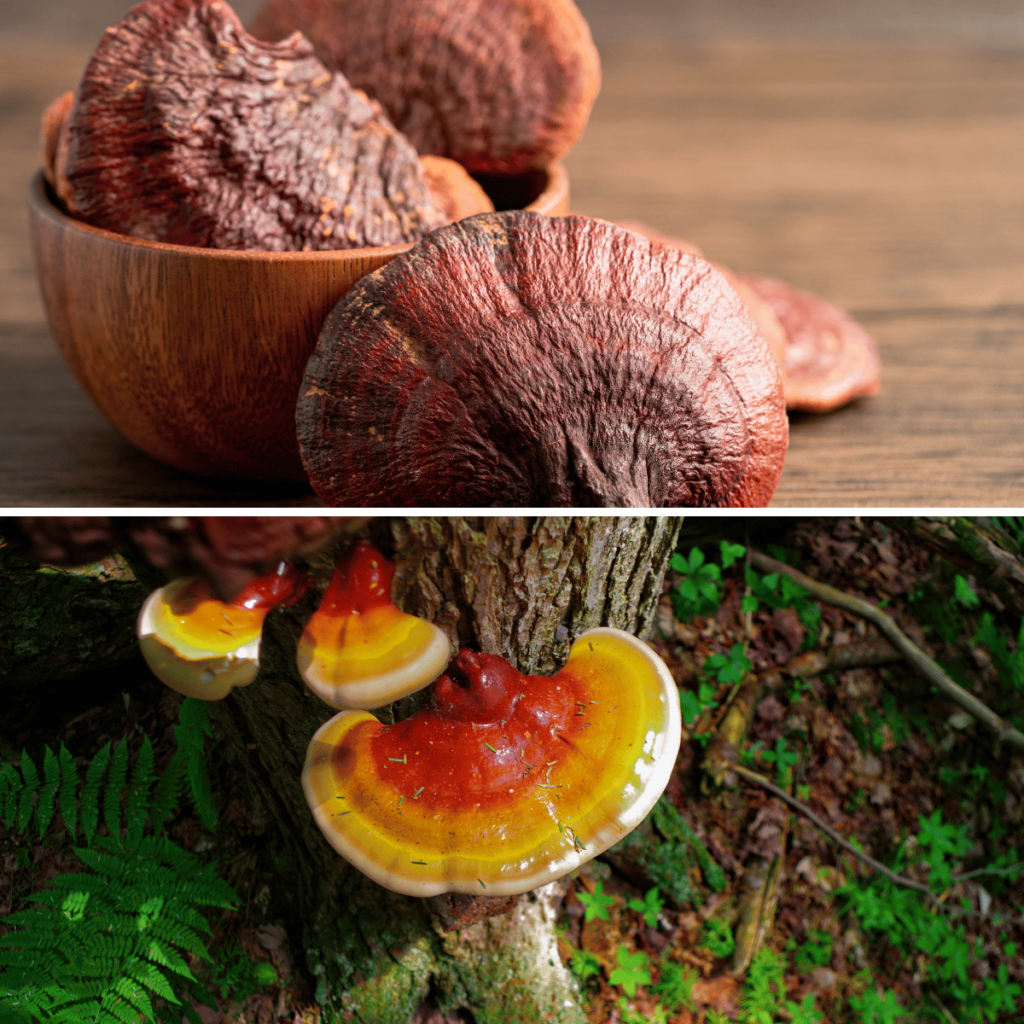
Clinical Evidence
Recent studies, including various clinical trials and in vitro studies, support the efficacy of reishi mushroom in managing autoimmune conditions. Traditional Chinese medicine has utilized reishi for centuries, emphasizing its potential benefits in reducing chronic inflammation and supporting overall immune function. Integrating reishi mushroom into your herbal regimen can offer substantial support for those dealing with autoimmune disorders.
Cautions
While reishi is generally safe for most people, pregnant and breastfeeding women should consult a healthcare provider before use due to limited safety data. Additionally, individuals taking blood-thinning medications should also exercise caution, as reishi may enhance the effects of these drugs.
Boswellia Serrata (Frankincense)
Benefits
Boswellia serrata, commonly known as frankincense, is renowned for its potent anti-inflammatory effects. It is particularly useful for supporting joint health, making it a favored choice for individuals with rheumatoid arthritis and other inflammatory autoimmune conditions. By reducing chronic inflammation, boswellia can help alleviate pain and improve mobility.
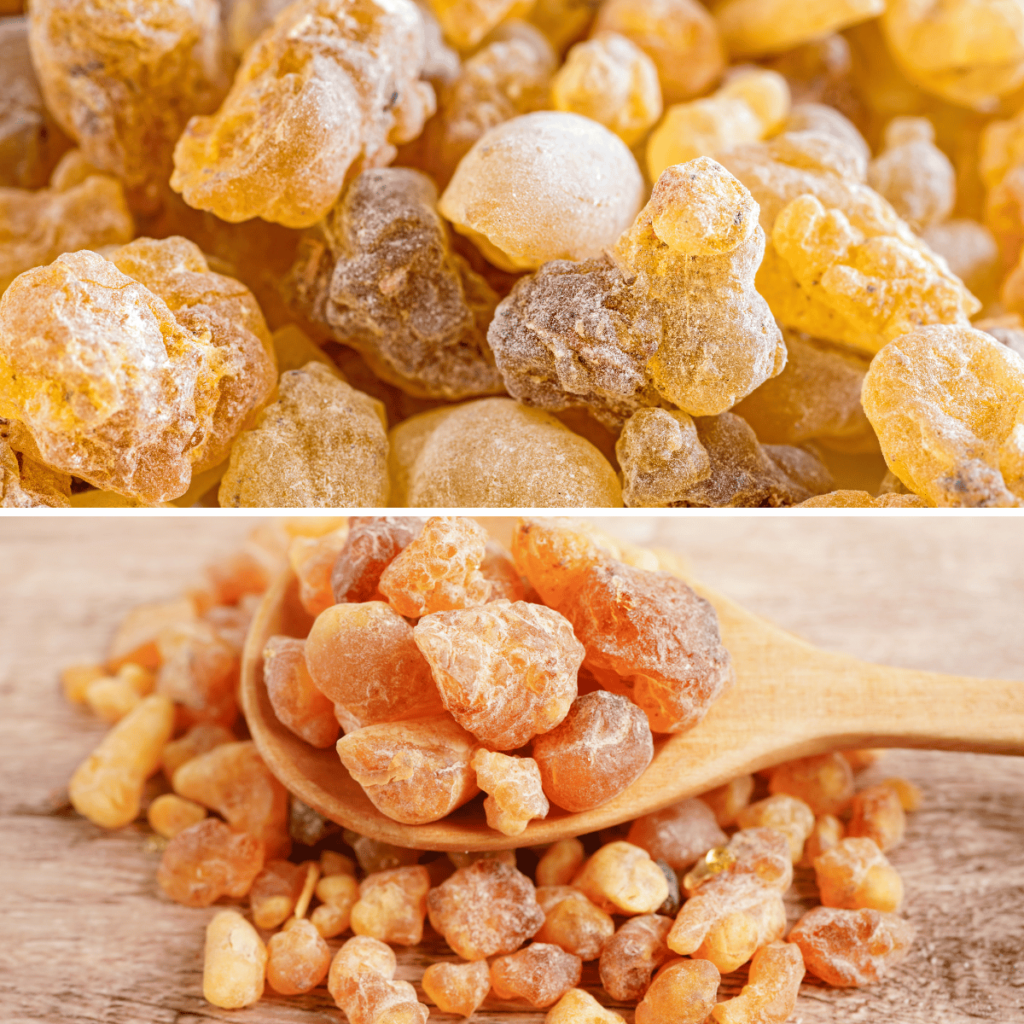
Clinical Application
Studies have shown that boswellia can be effective in managing symptoms associated with rheumatoid arthritis and inflammatory bowel disease. Its ability to target inflammation makes it a valuable herb for those living with autoimmune conditions and chronic disease.
Cautions
Boswellia is generally considered safe; however, pregnant and breastfeeding women should consult their healthcare provider before using this herb. Some individuals may experience digestive upset or allergic reactions, so starting with a lower dose is advisable.
Green Tea
Benefits
Green tea is packed with antioxidants, which play a crucial role in managing oxidative stress—a key factor in many autoimmune diseases. The compounds found in green tea can help enhance immune function while providing protective benefits against cellular damage.
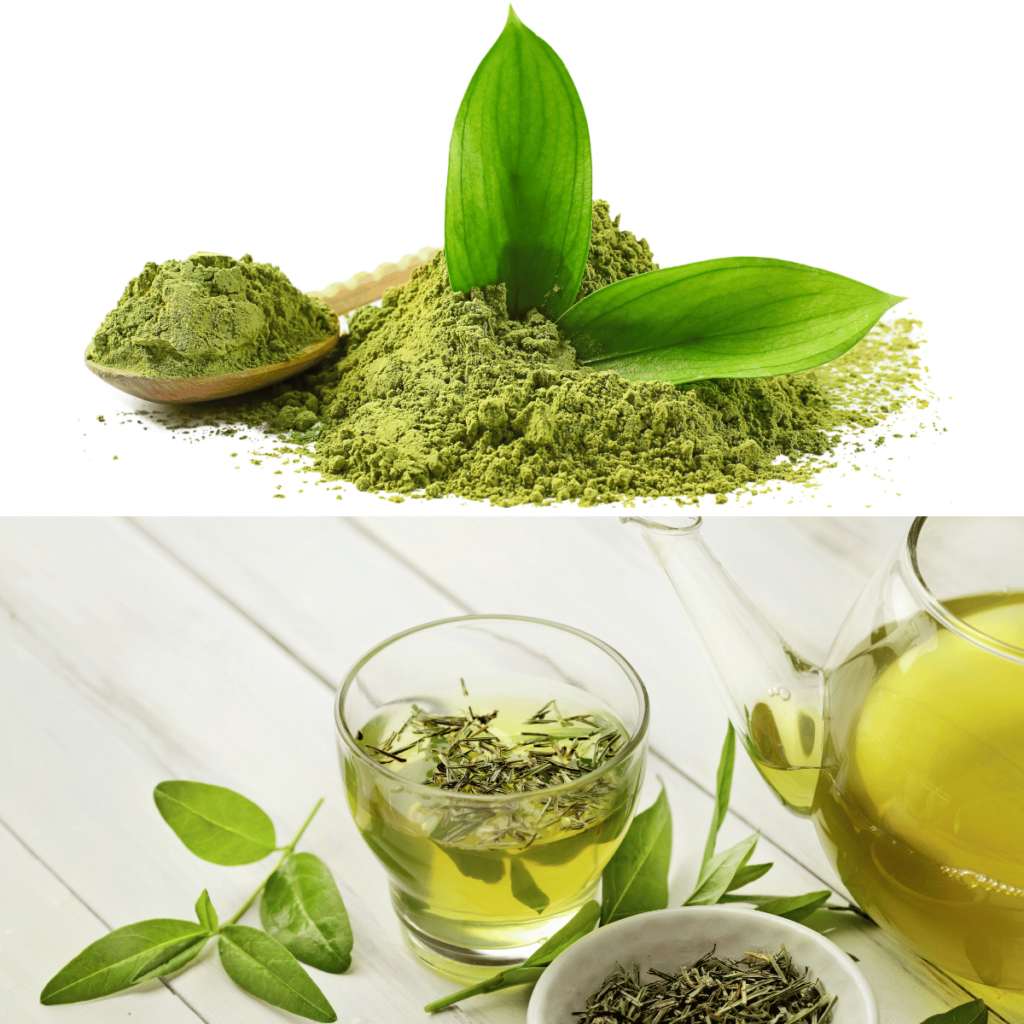
Clinical Evidence
Previous research and clinical studies support the use of green tea for its beneficial effects on autoimmune diseases. The rich antioxidant profile of green tea may help reduce inflammation and improve overall health.
Cautions
While green tea is safe for most people, those who are pregnant or breastfeeding should limit their intake due to caffeine content. Additionally, individuals with certain health conditions or on specific medications should consult a healthcare provider to avoid potential interactions.
Turmeric (Curcumin)
Benefits
Turmeric, specifically its active compound curcumin, boasts powerful anti-inflammatory and antioxidant properties. This herb is known for its ability to combat oxidative stress and reduce inflammation, making it beneficial in managing symptoms of various autoimmune diseases.
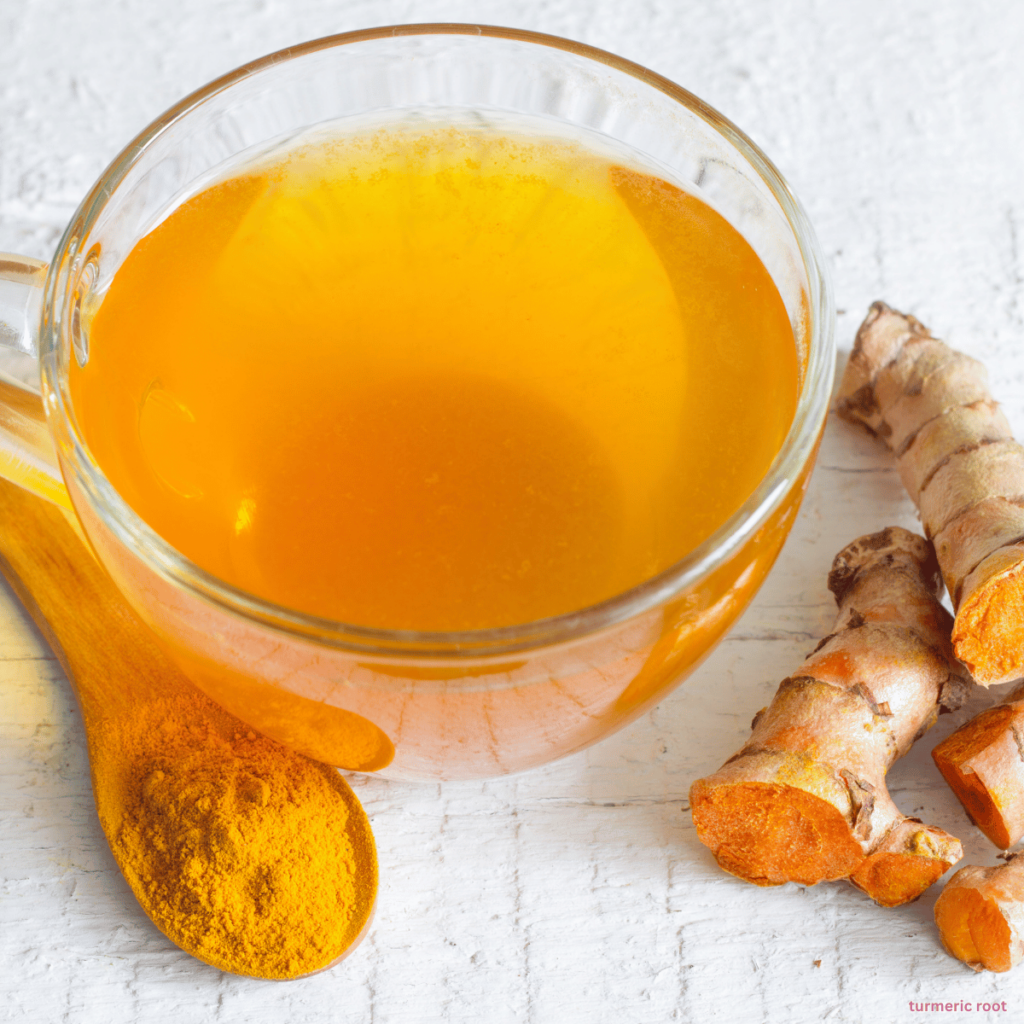
Clinical Application
Turmeric is widely recognized for its positive effects on autoimmune conditions and chronic diseases. By incorporating turmeric into your treatment plan, you can help address various symptoms and support your overall health.
Cautions
Turmeric is generally safe but should be used cautiously by pregnant or breastfeeding women. It may also interact with certain medications, including blood thinners and drugs that reduce stomach acid. Consulting a healthcare provider is recommended before adding turmeric to your regimen.
Ashwagandha
Benefits
Ashwagandha is a powerful adaptogen known for its ability to help manage psychological and emotional stress. This herb supports overall immune health, making it particularly useful for individuals dealing with chronic disease and autoimmune conditions.
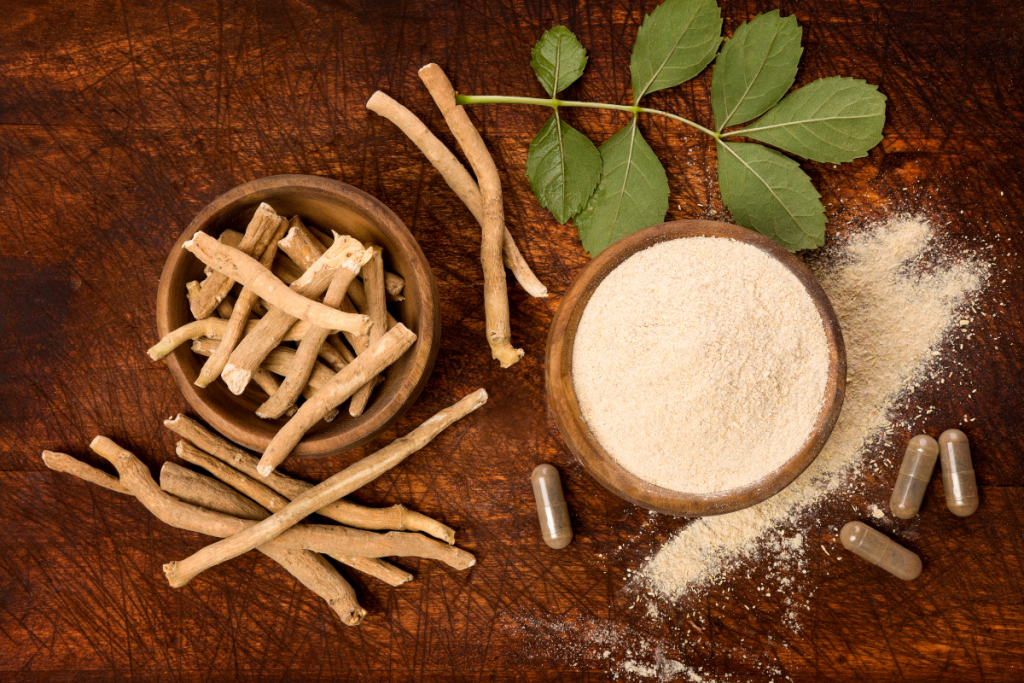
Traditional Use
Commonly used in Ayurvedic medicine, ashwagandha promotes a holistic approach to health by balancing the body’s response to stress. Its calming effects can help improve resilience against the emotional challenges that often accompany autoimmune diseases.
Cautions
While ashwagandha is generally safe for most people, those who are pregnant should not take this herb as it can cause a miscarriage. Individuals with thyroid disorders should also exercise caution, as ashwagandha can affect thyroid hormone levels.
By integrating these herbs into your daily routine, you may find natural support for managing autoimmune diseases. Always remember to consult with a healthcare provider to ensure these herbs are appropriate for your specific health needs.
The Science Behind Herbal Remedies
Clinical Trials and Research on Herbal Treatments
In recent years, the interest in herbal remedies for managing autoimmune diseases has grown significantly, leading to a wave of clinical trials and research studies. These investigations aim to uncover the potential benefits of various herbs in addressing the complexities of autoimmune conditions. As a Registered Nurse and a mother of five, I appreciate the importance of evidence-based practices, particularly when it comes to the health of my family and community.
Recent studies have explored a range of herbs, documenting their effects on chronic inflammation and immune function. For instance, research has shown that herbs like turmeric and boswellia serrata can significantly reduce markers of inflammation in the body. This is particularly relevant for autoimmune diseases, where chronic inflammation often contributes to symptoms and disease progression.
Clinical trials focusing on herbal treatments have yielded promising results, indicating that specific herbs may lead to significant improvements in managing symptoms associated with autoimmune diseases. These studies often emphasize the need for rigorous methodologies and the importance of understanding how these herbal interventions can complement conventional medicine.
Observed Benefits
The benefits observed from these recent studies are noteworthy. Many participants in clinical trials reported enhanced well-being, improved energy levels, and a reduction in inflammation-related symptoms. These positive outcomes can translate into better overall health and quality of life for individuals grappling with autoimmune conditions.
Additionally, the health benefits of herbal treatments extend beyond just symptom management. They can contribute to long-term wellness by promoting a balanced immune response and reducing oxidative stress in the body. As a mother, I always seek effective ways to support my family’s health, and incorporating herbal remedies into our lifestyle is a step towards that goal.
Furthermore, the beneficial effects of herbs on various ailments underscore their potential as part of a holistic approach to health care. By integrating herbal treatments with conventional therapies, individuals may find a more comprehensive strategy to address their autoimmune symptoms and support their overall health journey.
In summary, the growing body of clinical research surrounding herbal remedies offers hope and valuable insights into how we can leverage nature’s offerings to better manage autoimmune diseases. As with any treatment, it’s essential to work with a healthcare provider to ensure the chosen herbs are safe and appropriate for individual health needs.
Practical Considerations When Using Herbs
Consulting with Healthcare Professionals
Before embarking on any new herbal supplement journey, it’s crucial to consult with a healthcare provider or a clinical herbalist. These professionals can help develop a comprehensive treatment plan tailored to your specific needs. They are equipped to guide you in selecting safe herbs that won’t interfere with any existing health conditions or medications you may be taking. Remember, while many herbs offer significant health benefits, they can also lead to adverse effects when misused or combined improperly with other treatments. Understanding potential interactions with conventional medicine is essential, especially when you are on prescription drugs. Some herbal supplements may amplify or diminish the effects of these medications, leading to unwanted side effects. Thus, keeping an open line of communication with your healthcare team ensures a safe and effective approach to managing your autoimmune condition.
Lifestyle Changes for Better Autoimmune Health
In addition to incorporating herbal remedies into your routine, adopting complementary lifestyle changes can significantly enhance your autoimmune health. Regular exercise plays a pivotal role in maintaining healthy cells and optimizing immune function. It helps reduce chronic inflammation and supports overall well-being. Dietary adjustments, such as incorporating anti-inflammatory foods, can also provide your body with the nutrients it needs to heal and thrive. Moreover, stress management techniques are vital for anyone dealing with chronic disease, as emotional stress can exacerbate symptoms of autoimmune disorders.
Essential oils can serve as a powerful adjunct to your wellness routine, offering calming effects that may help alleviate anxiety and promote relaxation. Engaging with a physical therapist can provide tailored exercises that improve mobility and strength, further supporting your journey toward better health. Together, these holistic approaches create a comprehensive strategy for managing autoimmune diseases, fostering an environment where your body can heal and function optimally. By addressing all aspects of health—physical, emotional, and mental—you can make meaningful strides in your overall wellness journey.
Rescourses for Best Herbs for Autoimmune Diseases
Make sure to check out my resource page for sourcing quality products like essential oils and herbs!
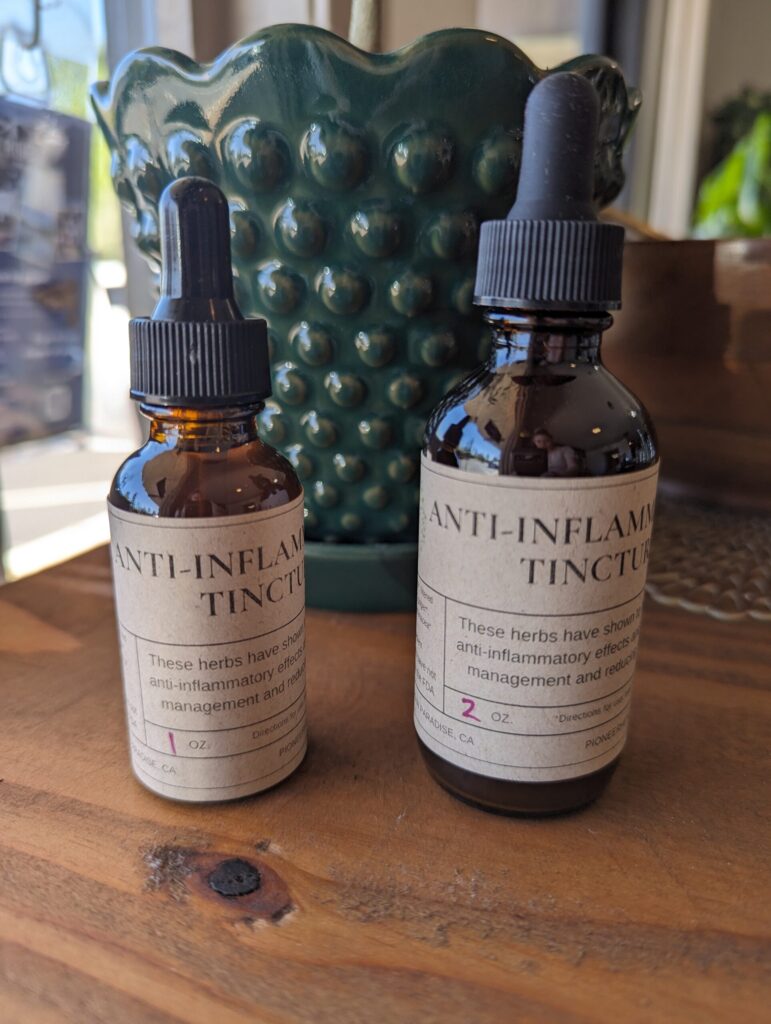
Overview of the Best Herbs for Autoimmune Diseases
The Path to Better Health
As we journey through the complexities of managing autoimmune diseases, the benefits of incorporating herbal medicine alongside conventional treatments become increasingly clear. Herbal remedies can complement your treatment plan, providing valuable support in managing symptoms and addressing chronic disease. When used mindfully, these natural solutions can enhance your overall health and well-being.
I encourage you to explore herbal remedies as part of your holistic approach to wellness, always in consultation with your healthcare provider or clinical herbalist. Together, you can tailor a treatment plan that respects both the benefits of herbal medicine and the guidelines of conventional treatments. Remember, a holistic approach can lead to significant improvements in your quality of life, helping you navigate the challenges of autoimmune conditions more effectively.
Let Me Know!
If you’re interested in learning more about safe herbal treatments for autoimmune diseases, don’t hesitate to reach out! It’s vital to consult with health professionals who can guide you on your journey. Additionally, feel free to explore the herbal products and supplements available in my shop, specifically designed to support autoimmune health. Together, we can work toward finding the best solutions for your unique needs.
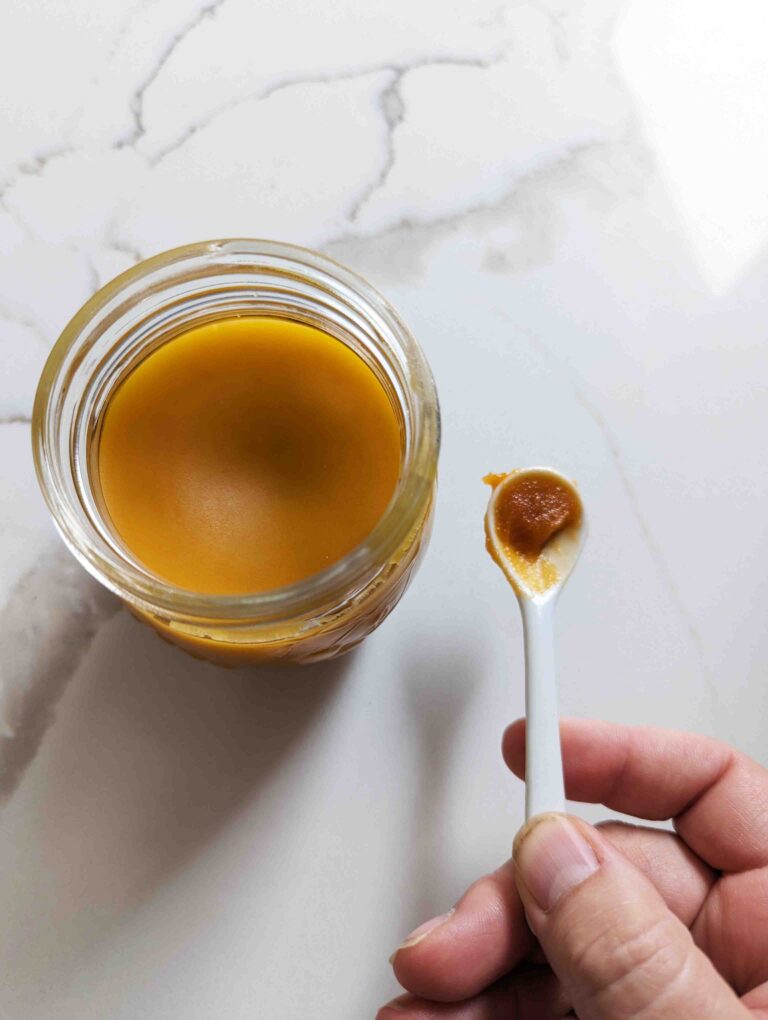
How to Make an Arthritis Salve: Best Recipe for Natural Pain Relief
Sharing is caring! Facebook Pinterest X How to Make an Arthritis Salve: Best Recipe for Natural Pain Relief Understanding Arthritis Pain and How an Anti-Inflammatory Salve Can Help An arthritis salve recipe offers a natural solution for easing chronic pain and joint pain. This salve helps reduce inflammation and discomfort in a gentle, holistic way,…

Calendula Salve Recipe: How to Make
Calendula Salve Recipe: How to Make Why You Should Try This Calendula Salve Recipe This calendula salve recipe is a simple yet effective natural remedy with a long history of healing properties. Calendula, or calendula officinalis, has been cherished in herbal medicine for its ability to soothe and nourish the skin. For centuries, people have…
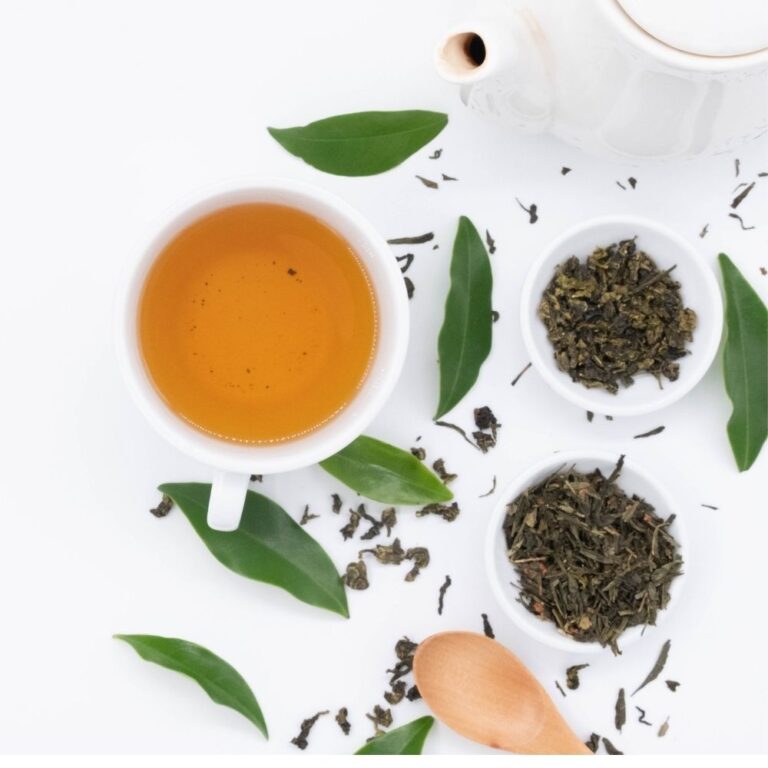
Green Tea Vs Herbal Tea: The Best Complete Tea Guide
Green Tea Vs Herbal Tea: The Best Complete Tea Guide Understanding the Differences Green tea vs herbal tea is a popular debate among tea lovers worldwide. Both offer unique flavors, health benefits, and caffeine content. Tea has a rich history and is enjoyed in many cultures. From Chinese green teas to herbal infusions in the…
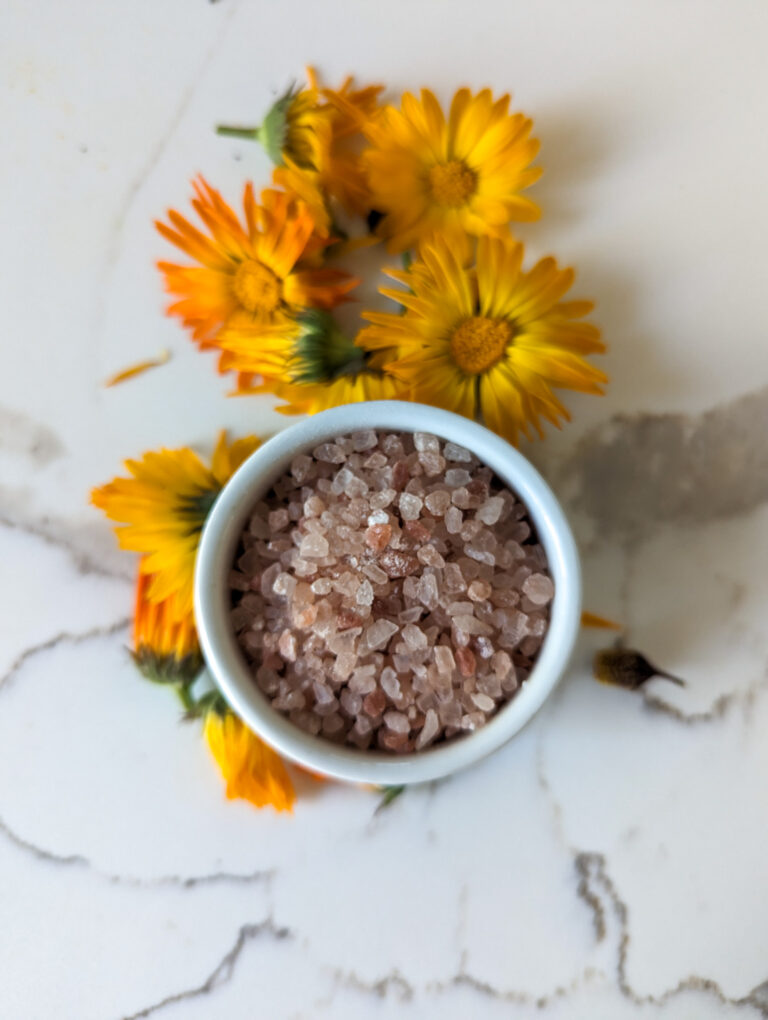
How to Make Bath Salts Without Epsom Salt: Free Recipe
How to Make Bath Salts Without Epsom Salt: Free Recipe How to Make Bath Salts Without Epsom Salt Homemade bath salts without Epsom salt are a great way to enjoy a luxurious soak. You can use natural ingredients like coarse sea salt, baking soda, and pink Himalayan salt for a soothing experience. A relaxing bath…

Homesteading in California: How to Start at Any Stage
Homesteading in California: How to Start at Any Stage How Homesteading in California is Possible Homesteading in California is a journey that looks different for everyone, depending on where you live in this vast and diverse state. From the deserts dotted with Joshua trees in the south, to the rugged mountain ranges in the north,…
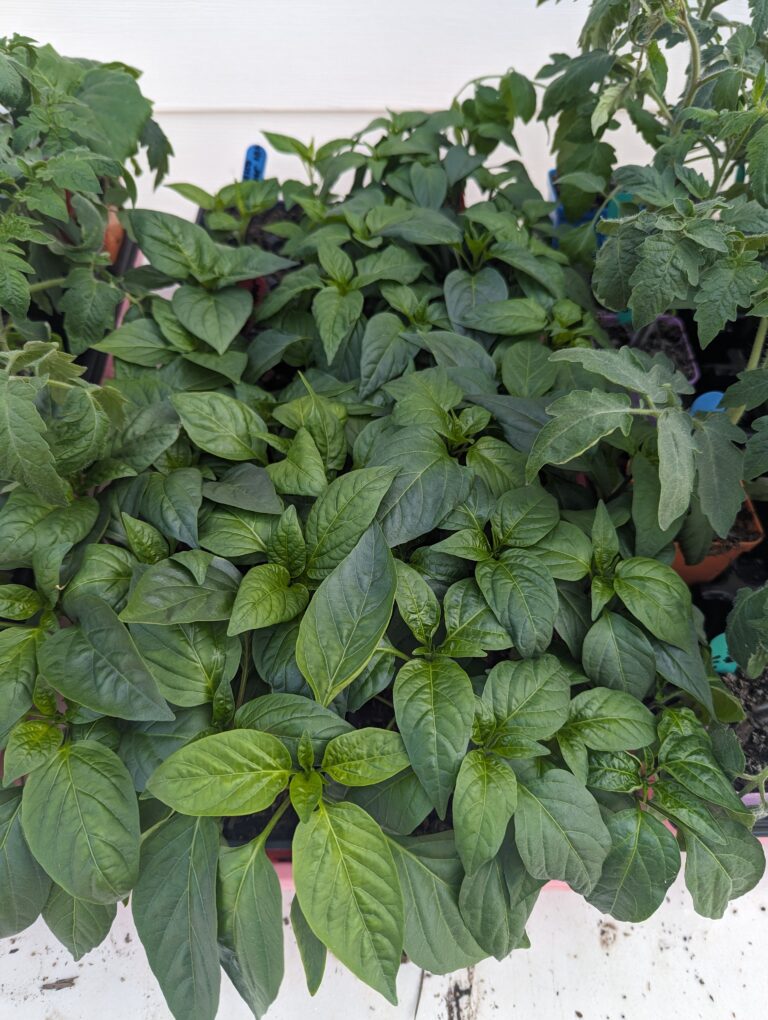
How to Make Peppers Grow Faster: Guide and Easy Tips
How to Make Peppers Grow Faster: Guide and Easy Tips How to make peppers grow faster is a common question among home gardeners seeking to maximize their growing season. Whether you’re nurturing sweet peppers, green peppers, or hot pepper plants, creating ideal conditions is essential for pepper success. The best way to achieve healthy pepper plants…
